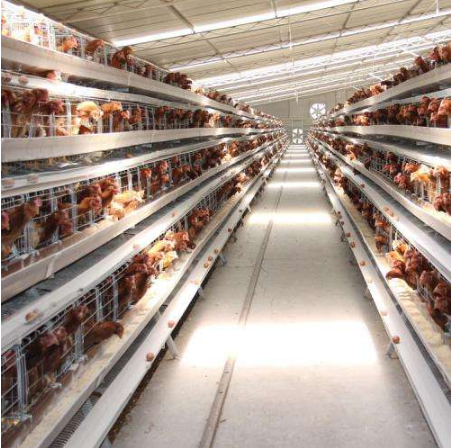Poultry farming deep litter systems are one of the ways to develop poultry farming projects. Chickens are raised on litter such as straw and sawdust. Chickens raised on floor litter had lower rates of sternal bursitis and leg disease compared to plastic slatted floors and battery chicken cage systems. Good litter dilutes chicken manure, absorbs water, maintains temperature, unleashes the chicken’s nature, and promotes animal welfare. The scientific use and management of deep litter is a key factor in the success of raising chickens.
Rice husks and sawdust are the most commonly used litter supplies. When the chickens are older, the straw and wheat straw can be cut short to 3-4cm long to lay the bed directly. When raising young chickens with thicker litter, it can be cut and compacted, and then a layer of rice husk or sawdust is placed on it, which can greatly save the amount of rice husk or sawdust.
Use fresh, dry deep bedding and avoid moldy deep bedding. Moldy deep nests will reduce the resistance of chickens, affect the immune effect of vaccines, and easily cause fungal pneumonia in chickens, causing serious losses.

The thickness of the litter is important. The thickness of the bedding material for flat-raised broilers in winter should not be less than 8cm. The aim is to keep warm and keep the ground away from cold and damp. At the same time, the fermentation heat of chicken manure in the thick litter can save energy and increase the temperature of the chicken house. In summer, a thin layer of litter should be used, and the thickness of the litter should be less than 3cm. If it is found that the litter is agglomerated and fermented, it should be taken out in time to allow the cool air under the ground to penetrate upwards to prevent the chickens from heat stroke due to heat dissipation on the surface.
Excessive drying of chicken house litter is also a major hidden danger in raising chickens, which is often overlooked in this regard. A variety of pathogenic factors (such as mycoplasma, Escherichia coli, etc.) attack chickens with dust raised by dry litter, which can cause large outbreaks of various diseases. When dry coops are dusty, the solution is to spray the litter once with clean water, then take the chickens away for disinfection. It moisturises the litter and reduces dust in the coop. Wet litter should be sprinkled in moderation and not overkill.
The above are the skills of poultry farming deep litter system shared by poultry equipment manufacturers. The scientific use and management of deep litter is a key factor in the success of raising chickens.